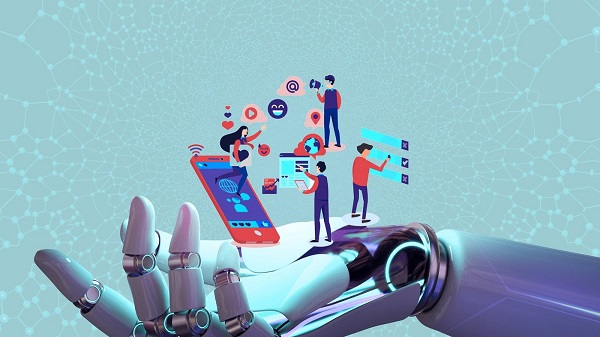
The Transformative Impact of AI on Social Media: An In-Depth Analysis
Artificial Intelligence (AI) refers to the simulation of human intelligence in machines that are programmed to think and learn like humans. It encompasses various technologies, including machine learning, natural language processing, and robotics. AI systems are designed to perform tasks requiring human intelligence, such as visual perception, speech recognition, decision-making, and translation. The development of AI has accelerated rapidly, leading to significant advancements in various fields, including social media.
AI’s ability to analyze large datasets, recognize patterns, and make predictions has made it a powerful tool in enhancing user experiences and optimizing business processes.
Current Use of AI in Social Networks
Content Personalization and Targeted Advertising
AI is already being used extensively in social media for content personalization. It analyzes user behavior, preferences, and interactions to curate a personalized feed. Additionally, AI powers targeted advertising by segmenting audiences and predicting which ads will be most effective for specific users, thus increasing engagement and click-through rates.
Moderation and Security
AI algorithms are crucial in moderating content on social media platforms, identifying and removing inappropriate or harmful content. They also enhance security by detecting suspicious activities and potential threats, protecting users from fraud and abuse.
Future Applications of AI in Social Networks
Looking ahead, AI has the potential to revolutionize social media further. One area is enhancing user interactions through more sophisticated chatbots and virtual assistants. AI could also play a significant role in identifying and managing fake news and misinformation by analyzing the authenticity of content shared on social platforms.
Another promising application is the use of AI in emotional analysis, helping brands understand user sentiments and reactions to their content or products. This could lead to more effective and empathetic marketing strategies.

Potential Risks and Ethical Concerns
While AI offers numerous benefits, it also presents risks and ethical concerns. One major concern is privacy, as AI systems often require access to vast amounts of personal data. There is also the risk of AI perpetuating biases, as algorithms may reflect existing prejudices present in their training data.
Another issue is the impact on employment, with AI potentially automating tasks traditionally performed by humans, leading to job displacement in certain sectors.
AI in Social Media: A Sustainable Trend or Temporary Hype?
The question of whether AI’s role in social media is a sustainable trend or temporary hype is a topic of ongoing debate. However, considering the current trajectory, it appears that AI will continue to play a crucial role in the evolution of social media. Its ability to process and analyze data at scale makes it invaluable for improving user experiences and business outcomes.
As technology advances, we can expect AI to become more integrated into social media platforms, driving innovation and creating new opportunities for engagement and monetization.
